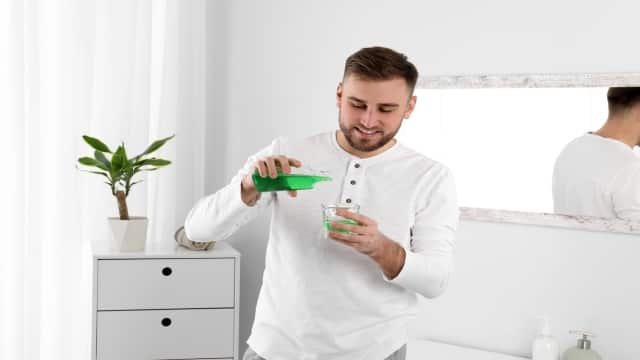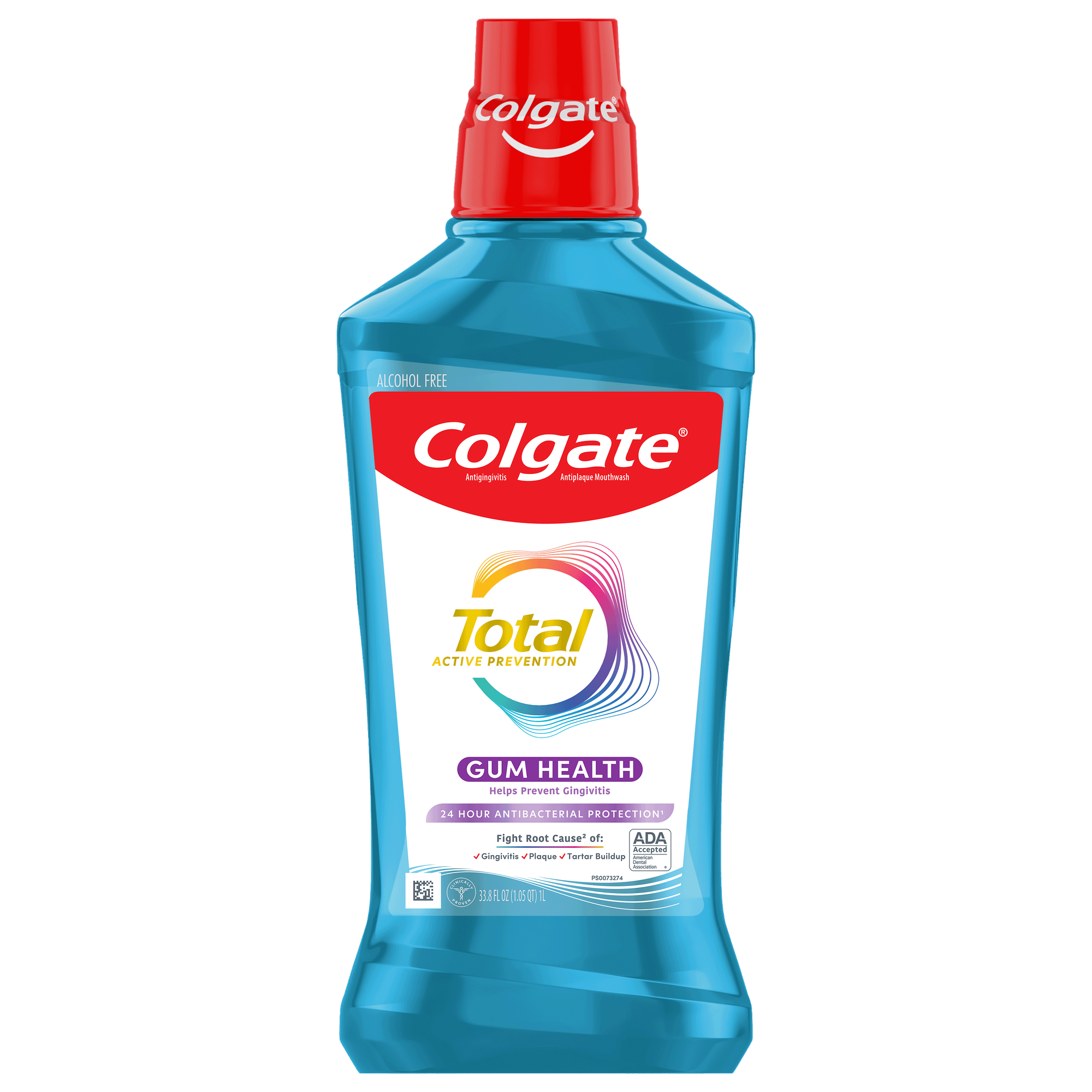Why Use Alcohol-Free Mouthwash?
Many marketed mouth rinses contain alcohol — specifically ethanol — but not for the reason you might think. At about 20 percent, the alcohol concentration is not high enough to destroy the odor-causing and decay-causing bacteria in your mouth. Instead, the alcohol stabilizes the formula and acts as a carrier agent for essential active ingredients like menthol or eucalyptol.
Still, many alcohol-free mouthrinses exist today. Check out some of these benefits for choosing a non-alcoholic formula:
- Avoid uncomfortable burning. The alcohol in mouthwash can cause an unpleasant burning sensation. Suppose you suffer from burning mouth syndrome or other oral irritations. In that case, you might want to select an alcohol-free mouthwash to avoid aggravating your condition.
- Fight dry mouth. Alcohol acts as a drying agent, inhibiting saliva production. Suppose you experience xerostomia or low saliva flow because of medicinal side effects, radiation therapies, or systemic diseases. In that case, an alcohol-free mouth wash could provide the benefits you need without the drying effects.
- Protect composite restorations. Studies by the Journal of Conservative Dentistry and the International Journal of Dentistry suggest alcohol-free mouthwashes have a better effect on the color, hardness, and wear of tooth composite restorations compared to mouthwashes that contain alcohol.
- Shield children, teens, and those with alcohol addictions. If accidentally — or purposely — consumed by children or teens, the 20 percent alcohol concentration can cause extreme illness. Recovering alcoholics might also choose to avoid alcohol mouthwashes because it can trigger a relapse.
Types of Alcohol-Free Mouthwashes
Alcohol-free mouthwashes can help prevent tooth decay, periodontal disease, dry mouth, halitosis, and plaque and tartar buildup. They can also help whiten your teeth. Look for the following ingredients to achieve your oral health goals:
- Fluoride. This naturally occurring mineral helps strengthen your enamel to help your teeth resist cavities and decay.
- Cetylpyridinium chloride. This antiseptic kills bacteria and other microorganisms that cause plaque and bad breath.
- Chlorhexidine gluconate. This antimicrobial reduces plaque and helps control gingivitis.
- Carbamide peroxide or hydrogen peroxide. This bleaching agent helps whiten teeth.
- Natural ingredients. Some compounds found in essential oils like menthol, eucalyptus, thymol, and other natural ingredients like aloe vera have antifungal and antibacterial properties that can fight plaque.
Plenty of alcohol-free mouth rinses exist to help you meet your oral health needs. But remember that these mouth rinses should never replace brushing and cleaning between your teeth with floss or other interdental devices. Instead, find a mouthwash that complements your regular dental care routine. Your dental professional can recommend options for an alcohol-free mouthwash to improve your oral health.
This article is intended to promote understanding of and knowledge about general oral health topics. It is not intended to be a substitute for professional advice, diagnosis or treatment. Always seek the advice of your dentist or other qualified healthcare provider with any questions you may have regarding a medical condition or treatment.
ORAL HEALTH QUIZ
What's behind your smile?
Take our Oral Health assessment to get the most from your oral care routine
ORAL HEALTH QUIZ
What's behind your smile?
Take our Oral Health assessment to get the most from your oral care routine















